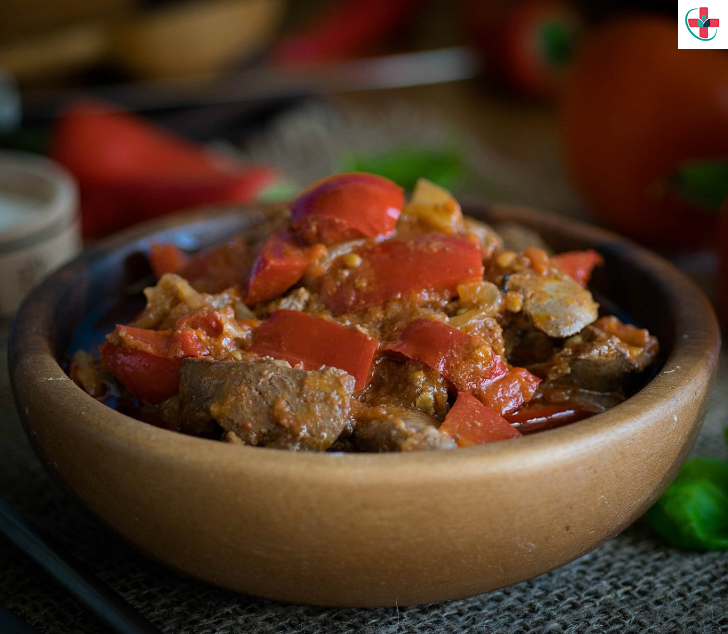One of the questions that people keep on asking is, “Is the liver good for health?” Well, in general, organ meats, like the liver, are considered to be one of the most powerful superfoods in nature. In actual fact, liver-like duck liver, chicken liver, and beef liver are high in various essential nutrients. These nutrients are what make up the different health benefits of the liver.
When we usually think about superfoods, we may think of things like plant foods like berries, green leafy vegetables, green tea, cocoa, and more. Nevertheless, various animal foods are also highly loved because of their rich nutritional content, most especially the organ meats. This is exactly why they’ve been incorporating various traditional diet plans for thousands of years now.
Why is Liver Good for You?
The liver does not just provide very high levels of vitamin A and iron, it is also one of the best sources of various B vitamins, magnesium, and phosphorus. As a matter of fact, the liver is with no doubt, your utmost source of vitamin B12. If you are going to compare the general nutrient density of the liver to some other healthy foods like apples, carrots, or spinach, the liver may beat all of them because of the number of minerals and vitamins it contains every calorie.
Nevertheless, the key to acquiring all of these benefits from the liver is the consumption of the right kind of it. The liver that is derived from the grass-fed, organic, or pasture-raised kind of animals is the right one. It is recommendable that you avoid consuming the organs of the animals that are not suitably fed.
Nutrition Facts of Liver
| Principles | Amount | % Daily Value |
|---|---|---|
| Calories | 49 | - |
| Protein | 7 grams | - |
| Fat | 2 grams | - |
| Vitamin B12 | 6 micrograms | 79% |
| Vitamin A | 4076 international units | 75% |
| Folate | 132 micrograms | 40% |
| Riboflavin | 0.6 milligrams | 33% |
| Selenium | 23 milligrams | 33% |
| Pantothenic acid | 1.9 milligrams | 19% |
| Iron | 3.6 milligrams | 18% |
| Niacin | 3.9 milligrams | 15% |
| Vitamin B6 | 0.2 milligrams | 11% |
| Phosphorus | 125 milligrams | 11% |
Health Benefits of Liver
Here are some of the health benefits of the liver:
- Helps in providing CoQ10. Both the beef heart and the beef liver are rich sources of CoQ10. This is usually taken in supplement form and is beneficial in producing energy. As a matter of fact, it is linked with cardiovascular health, vascular health, improved blood pressure levels, and many others.
- Great source of protein. Eating about 1-3 ounces of the liver may provide approximately 21 grams of quality protein. Protein is beneficial with dozens of functions in the body. Furthermore, protein is also beneficial for tissue repair, growth, and development during childhood, and many others.
- Helps support liver function and detoxification. The essential B vitamins in the liver, specifically the folate is beneficial with the cellular functions. Thus help in supporting the detoxification pathways of the body. This just means that the consumption of the liver may help the liver.
- Great food for pregnancy and fertility. There is an ample amount of essential nutrients in the liver, thus making it a perfect food for pregnancy. Furthermore, it also provides vitamin A, which is beneficial in reducing oxidative stress.
- Rich in folate, biotin, and vitamin B6. The liver is oozing with B vitamins, which are all essential for the body. All of these essential nutrients are beneficial for the betterment of the body.
- Great source of vitamin A. There is an ample amount of vitamin A in the liver. This is a beneficial fat-soluble vitamin, which may act as an antioxidant, thus helping in the reduction of inflammation by way of fighting free radical damage.
- Rich in vitamin B12. The best among all the health benefits of the liver is its rich levels of vitamin B12. This is beneficial in the formation of red blood cells, as well as improve the cellular function.
The answer to the question, “Is the liver good for the health?” is definitely a yes!
Ways To Take Liver
The liver is one of the best things to eat …. cooked or raw. Eating it in the raw form has an advantage because of all the enzymes they contain. Cooking will destroy these enzymes, but you still get many of the nutrients (except for the delicate B vitamins which get decreased during cooking).
